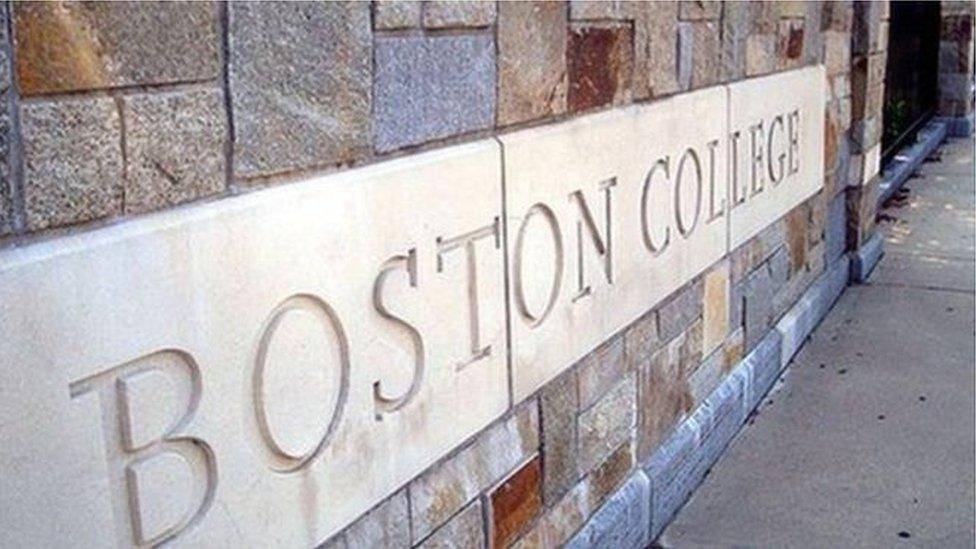Boston Tapes: PSNI in court bid to access recordings
- Published
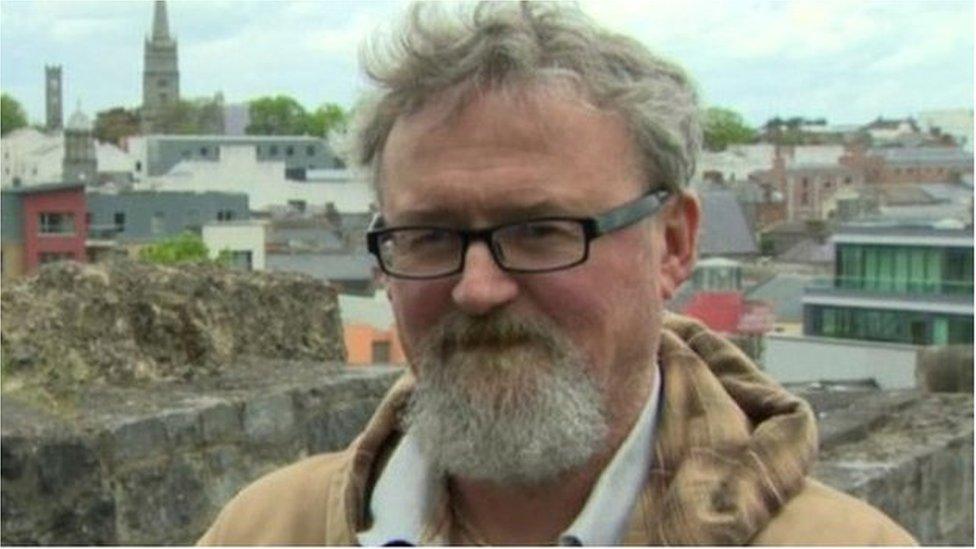
Former IRA man Anthony McIntyre was a lead researcher on the oral history project
Police are continuing to try to obtain secret recordings about a former IRA member's activities during the Troubles, the High Court has heard.
Anthony McIntyre is among a number of ex-paramilitaries who gave confidential testimonies to Boston College about their role during the Troubles.
The convicted murderer was also a researcher on the Boston tapes oral history project.
The interviews are being sought for an ongoing criminal investigation.
The tapes remain in secure storage in a Belfast court building.
The Police Service of Northern Ireland (PSNI) wants the prohibition on accessing the recordings lifted before the May 1 deadline for advancing inquiries under the terms of the Government's new Legacy Act.
On Thursday the PSNI's lawyer said the force wants to "receive the materials and review them for the purposes of its investigation".
In 2018, Mr McIntyre launched a legal battle to ensure the recordings and transcripts remain confidential.
He was one of the main researchers for the Boston College project to compile an oral history of the conflict in Northern Ireland.
Boston College's Belfast project secured candid interviews with both loyalist and republican paramilitaries, who spoke about their personal involvement in Troubles-era violence.
The interviews were arranged under the condition that the material would not be made public until the death of the individual interviewee.
Mr McIntyre is also among dozens of ex-paramilitaries who gave testimonies about their role during the Troubles on the understanding the accounts would remain confidential while they are alive.
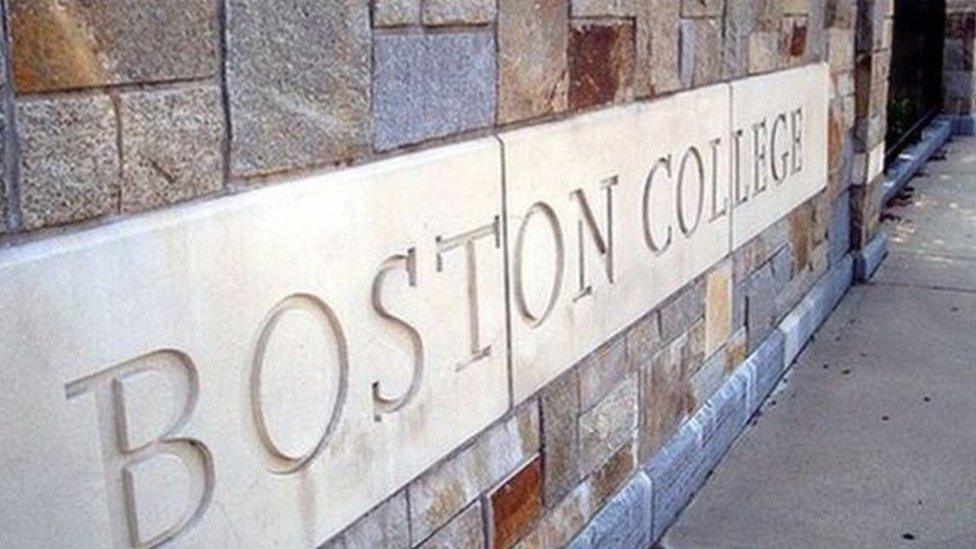
However, the Police Service of Northern Ireland (PSNI) later secured transcripts given by former IRA woman Dolours Price and high-profile loyalist, Winston Rea.
They have been seeking Mr McIntyre's recordings for several years.
The Belfast man was jailed for murder in 1977.
Detectives want access to Mr McIntyre's recorded recollection of his own IRA activities.
A subpoena seeking copies of his interviews was served on Boston College by the UK government.
The move involved an International Letter of Request (ILOR) setting out alleged offences under investigation, including a bomb explosion at Rugby Avenue in Belfast in 1976, and membership of a proscribed organisation.
Although PSNI officers brought the Boston tapes back to Northern Ireland, they were kept sealed because of Mr McIntyre's legal challenge.
He claimed police should not be allowed the recordings due to mistakes and inaccuracies in the ILOR.
In October 2018, Mr McIntyre failed in his bid to stop police getting hold of secret interviews when the High Court dismissed his bid for an injunction.
In 2019, he was granted a Supreme Court hearing seeking to overturn the ruling.
'Allow PSNI to retake possession'
The PSNI told the court that all routes of appeal have been exhausted.
The barrister told the judge he was seeking to "remove the stay and allow the PSNI to retake possession of this material".
The PPS barrister also claimed there was no basis for maintaining the prohibition.
However, Mr McIntyre's lawyers argued that the legal proceedings are still ongoing.
His lawyer questioned whether there ever was a live investigation into his client's activities.
"This was a fishing expedition because he made it public that he had been involved in the Boston project," he said.
The case was adjourned to next month, when the PSNI is expected to make a formal application for the stay to be lifted.
The judge said: "This court, having given a judgment, can't just hold material indefinitely."
Related topics
- Published17 October 2019
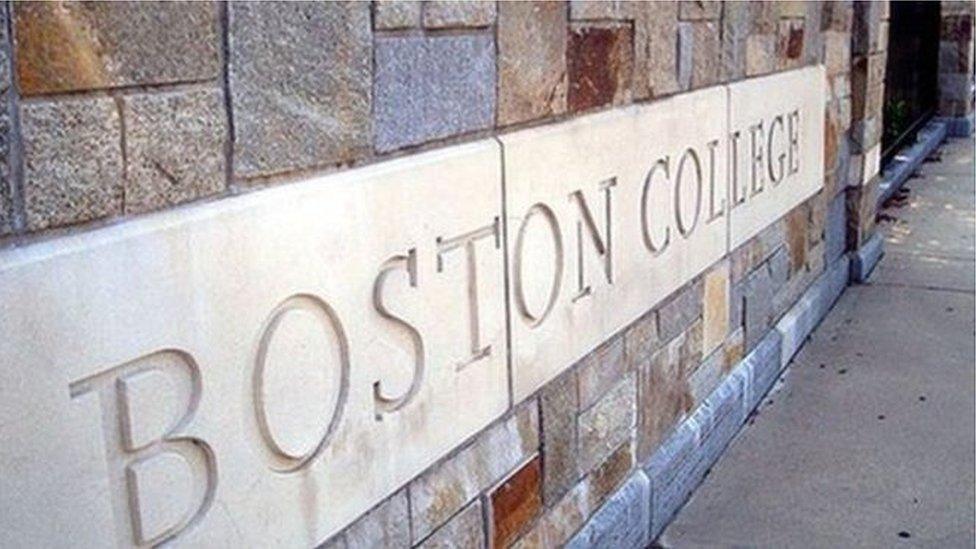
- Published19 September 2016
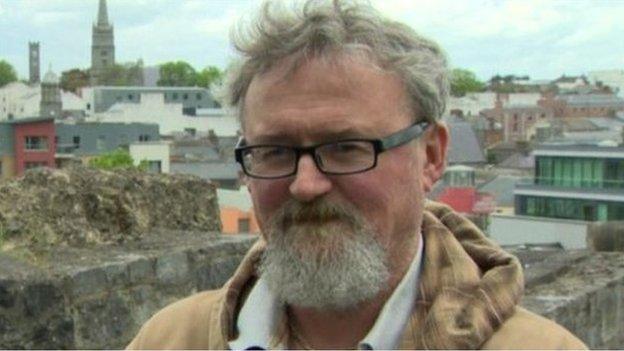
- Published7 June 2016
